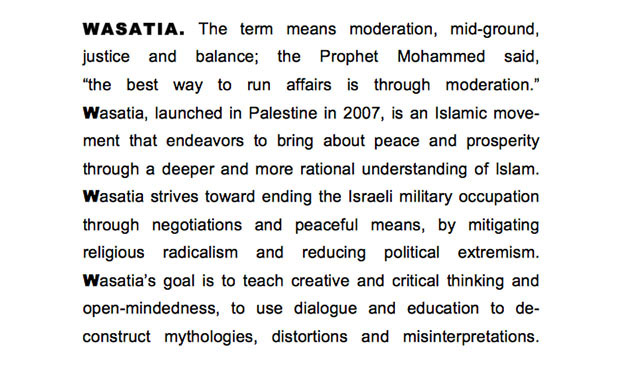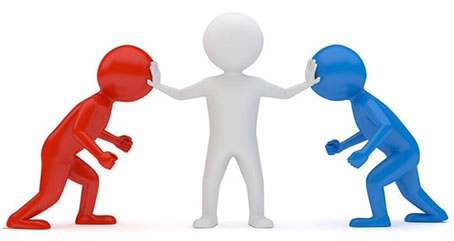913 Moderation
Moderation
I like the issue of moderation in the
context of politics and policies. It is being observed that in Australia - but
just as much in the US and Europe - moderation has taken a backseat in public
discourse. Political parties and governments have veered toward the fringes on
both the left and the right.
I've added an essay WASATIA to my book en.light.en.ment in
a new edition 43 ... I like to acknowledge and support an Islamic organisation that espouses
the qualities of moderation, while all over the world societies are grappling
with shifts to the extremes of politics.
Especially in view of the current strife
in Gaza, I deem it important to pay heed to - and make their voice
heard - a Palestinian organisation that abhors violence and wishes to
contribute to bringing the conflict in Israel / Palestine to a peaceful end.
(Wasatia goals)


___________________________________________________________________________
How Roseanne made Donald Trump possible
(Telegraph UK, via SMH)
The fundamental operating model of (Australian) politics is breaking down
(SMH):
"In 1996 more than one in three Australian
politicians rated themselves as “moderate” - that is, centre-left Liberal and
centre-right Labor politicians. This share has shrunk dramatically. At the most
recent federal election in 2016 only one in 10 politicians described themselves
as moderate.
"Many commentators have suggested that
political disillusionment is driven by discrete groups, like working-class men
or lower-income families.
"The breadth of political polarisation
across the community suggests that its causes are deep and longstanding. People
used to watch the same nightly news programs, read the same articles in a
handful of newspapers. Many listened to a pastor or priest each Sunday, were
members of unions, service clubs and community organisations. These forces
bound the community together and helped normalise people’s views and political
ideas. Not everyone had the same opinions, but there was common information
from which to conduct a productive debate. Whether left, right, working class,
middle class, religious or atheist, people were still hewed to common sources
of information and shared values.
"In the 21st century, these binding forces
have weakened and voters have become more disparate. Fewer people are members
of churches, unions, service and community groups. Rather than watching the
evening news on TV, many Australians now get most of their news through
personalised social media feeds, which can reinforce group-think among
ever-more partisan communities.
"The internet is the new political
battleground. Political differences are being exploited by organisations that
target individuals using data from Facebook, Twitter and massive email
databases. Rather than prosecuting a single public manifesto, political warfare
now involves personalised messages directed at the known fears and prejudices
of individual voters with unprecedented precision.
"The political implications of increasing
voter polarisation are profound: the fundamental operating model of Australian
politics is breaking down. That operating model was based on the “median voter
principle”, which assumes that the electorate is a continuum from conservatives
on one side to progressives on the other. The combination of compulsory voting
and a two-party system meant that the strategy to win the most votes in
Australian politics was always to position your party as close to the median
voter as possible.
"As the electorate becomes more divided,
this operating model isn’t working nearly as smoothly as it once did. More
ideological voters don’t want centrist compromise, which is why they keep
rewarding parties that decry it. In recent years the political groups that have
most successfully navigated these dynamics have been the populist fringe or
single-issue parties.
"Their political MO is to exploit the
growing ideological divide, cultivate rivalries between communities and appeal
to disparate voters."